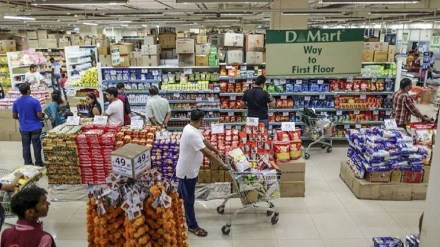With the FMCG industry poised for transformation in 2024 as stakeholders respond to heightened customer awareness of pricing, packaging, quality, and sustainability, TeamLease Services report said that the sector should focus on measures to seize the new opportunities. FMCG companies should focus on increased hiring, retention, and productivity to seize new opportunities amid uncertainties, the report stated.
TeamLease Services has released a report on the country’s FMCG sector, unveiling a wealth of transformative insights poised to reshape the industry landscape. The report identified a significant gender disparity in the FMCG workforce, with male associates comprising over 90 per cent of the outsourced workforce. The report said that hiring, attrition, and productivity (HAP) are the three vectors to optimize their people supply chain.
Kartik Narayan, CEO of Staffing, TeamLease Services Limited, said, “The report unveils critical insights into the evolving landscape of India’s FMCG sector, offering stakeholders invaluable strategic guidance in navigating opportunities and challenges. From harnessing technology and innovation to addressing workforce dynamics, organizations must embrace agility and foresight to thrive in this dynamic market environment.”
Balasubramanian A, Vice President & Business Head of TeamLease Services Limited, said, “With top cities like Mumbai, Bangalore, Chennai, Delhi, and Hyderabad experiencing significant growth in intent to hire, the FMCG sector is poised for robust workforce expansion and talent acquisition. This trend signals a positive outlook for industry players looking to capitalize on emerging opportunities and scale operations effectively.”
He further added, “The gender disparity in the FMCG workforce, with male associates comprising over 90 per cent, underscores the need for concerted efforts to promote gender diversity and inclusivity in the industry. Embracing diversity not only fosters innovation but also reflects a commitment to creating a more equitable workplace.”
In terms of cities, the report said that Mumbai, Bangalore, Chennai, Delhi, and Hyderabad are among the top five Indian cities that showcase a strong intent to hire in the FMCG sector. The report highlighted a significant growth in new hiring for sales, marketing, and IT, along with office services, human resources, and blue-collar job roles.
According to the report, metros have the highest attrition rates at 27 per cent, followed by tier-I and -II cities at 26 per cent. People in tier-III and -IV cities have lower attrition rates than those in metros, which, it said, is a reflection of the relatively lower level of demand in rural markets.
Further, it stated that the average age of active associates is over 36 and that of the attrited ones is nearly 34. Indicating that younger employees tend to attrite more. Correspondingly, the tenures of active and attrited associates is 1.7 and 1.1 years respectively. The report also categorized attrition into two distinct types: ‘regrettable’ and ‘non-regrettable’. While regrettable attrition accounted for 21 per cent of departures, involving employees whose exceptional performance resulted in incentive earnings that exceeded the company’s average incentives, non-regrettable attrition, which represents 39 per cent of the attrition rate, occurs in cases where employees do not earn any incentives.
In terms of average CTC, the report said that for current and attrited associates, it is the highest in southern India. Notably, while the gap between the salaries of active and attrited associates is negligible, the gap in incentives earned is significant. This indicates that incentives are a much stronger predictor of attrition rather than salaries, as salaries seem quite inelastic.
FMCG industry’s growth prospects
With India poised to become the third-largest economy and with significant government support, the FMCG industry is projected to reach substantial revenue milestones in the coming years. Government initiatives like FDI allowances and the PLI scheme are fueling industry growth and export potential. “E-commerce expansion and direct-to-consumer models are paving the way for market penetration, particularly in rural areas. Adapting to evolving consumer preferences through continuous innovation and product diversification is crucial, as India’s expanding middle-class and youthful demographic ensures sustained market expansion. In such a scenario, leveraging technology for operational efficiency, data-driven decision-making, and optimizing supply chains is crucial,” it stated.
It also focused on the need to collaborate with traditional Kirana stores through enhanced digital connectivity, while maintaining that modern trade and e-commerce, especially quick commerce will make rapid strides as there’s a distinct change in consumer behaviour being seen.
